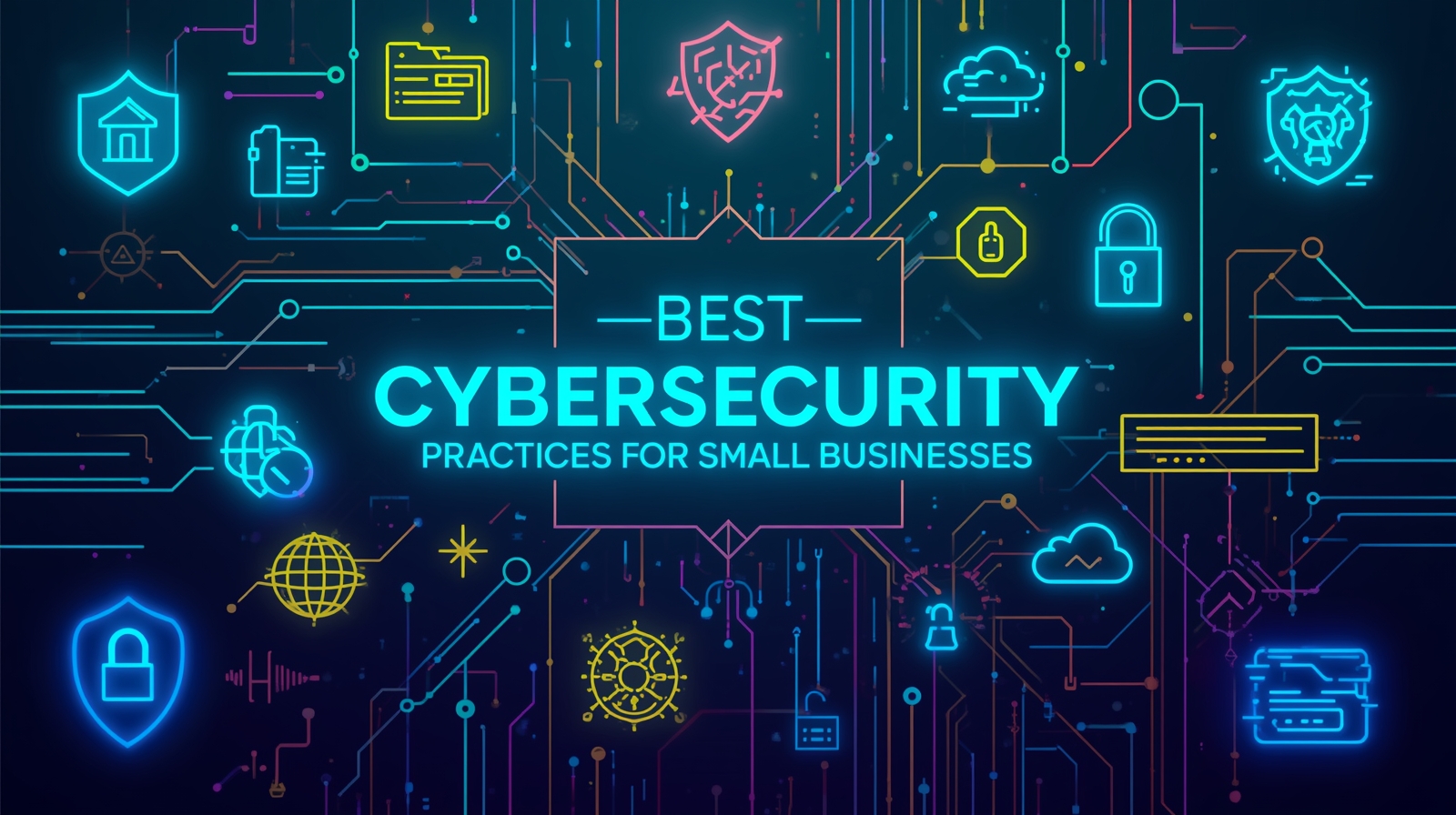In today’s digital world, cyber threats have become a major concern for companies of all sizes. However, small businesses are often the most vulnerable because they lack strong security systems and IT teams. This makes applying the Best Cybersecurity Practices for Small Businesses essential for protecting data, customers, and long-term business growth.
Cyber attackers target small companies because they assume owners are unaware of the Best Cybersecurity Practices for Small Businesses, making them easy prey. In this comprehensive guide, you’ll learn how to protect your website, systems, email accounts, and business data using practical, affordable techniques.
Why Cybersecurity Matters for Small Businesses
Cyber-attacks can lead to:
- Data theft
- Financial loss
- Website hacking
- Loss of customer trust
- Legal issues
- Business downtime
The Best Cybersecurity Practices for Small Businesses help prevent these risks and ensure your business stays safe, online, and fully operational.
Common Cyber Threats Small Businesses Face
Understanding risks is the first step toward implementing the Best Cybersecurity Practices for Small Businesses.
1. Phishing Attacks
Fake emails trick employees into sharing sensitive information.
2. Malware & Ransomware
Malicious software that steals data or locks systems until payment is made.
3. Password Breaches
Weak passwords allow hackers easy access to business accounts.
4. Website Hacking
Poorly secured websites become easy entry points for attackers.
5. Insider Threats
Employees or contractors misusing access intentionally or accidentally.
Small businesses must adopt the Best Cybersecurity Practices for Small Businesses to protect against these threats.
Best Cybersecurity Practices for Small Businesses (Complete Guide)
Let’s explore the most effective ways to strengthen your cybersecurity.
1. Use Strong Passwords and Multi-Factor Authentication (MFA)
Weak passwords are one of the biggest reasons businesses get hacked.
Implementing this step is one of the Best Cybersecurity Practices for Small Businesses because it reduces unauthorized access.
Tips:
- Use strong passwords (12+ characters)
- Never reuse a password
- Enable MFA for all business tools
- Use a secure password manager
2. Keep Software and Systems Updated
Updates include security patches that fix vulnerabilities.
Outdated software is a danger zone—making updates one of the Best Cybersecurity Practices for Small Businesses.
Update Regularly:
- Operating system
- Website CMS
- Plugins and themes
- Antivirus software
3. Train Employees on Cybersecurity
Human errors cause more than 80% of cyber breaches.
Employee training is one of the strongest Best Cybersecurity Practices for Small Businesses.
Train Your Team On:
- Recognizing phishing emails
- Safe browsing habits
- Using secure passwords
- Following access policies
4. Secure Your Website Completely
Your website is often the first-place attackers target.
Website Security Checklist:
- Install SSL certificate
- Use security plugins
- Enable website firewall
- Regularly scan for malware
- Backup website daily
These steps strengthen the Best Cybersecurity Practices for Small Businesses for online safety.
5. Use Antivirus & Firewall Protection
Firewalls and antivirus software protect your devices from harmful attacks.
Ensure You Have:
- Network firewall
- Device-level antivirus
- Email security filters
- Endpoint protection
Every small business must follow these Best Cybersecurity Practices for Small Businesses to keep their network clean.
6. Protect Customer Data
Data privacy laws require you to protect customer information.
Security Tips:
- Encrypt sensitive files
- Use secure payment gateways
- Restrict access to confidential information
Data protection is central to the Best Cybersecurity Practices
7. Regular Data Backups
Backups save you during system failures or ransomware attacks.
Use 3 Backup Methods:
- Cloud backup
- Local storage backup
- Secure external drive backup
Regular backups are a non-negotiable part of the Best Cybersecurity Practices for Small Businesses.
8. Limit Access to Sensitive Information
Not every employee needs access to everything.
Access Control Tips:
- Assign role-based access
- Use admin-level control
- Remove old employee accounts immediately
This protects your company from internal and external threats and is a key component of the Best Cybersecurity Practices for Small Businesses.
9. Implement Secure Wi-Fi Networks
Your office Wi-Fi can be hacked if not protected.
Ensure Wi-Fi Has: **
- Strong password
- Hidden SSID (optional)
- Separate guest network
A secure Wi-Fi setup aligns with the Best Cybersecurity Practices
10. Create a Cybersecurity Policy
Every business must have a written security plan.
This makes employees clear about their responsibilities and is a crucial part of the Best Cybersecurity Practices for Small Businesses.
Conclusion
Cybersecurity is no longer optional—it is a business necessity. Implementing the Cybersecurity Practices protects your website, customer data, finances, and brand reputation. With strong passwords, security updates, employee training, backups, and secure systems, your business can operate safely in the digital world.
By following these Best Cybersecurity Practices for Small Businesses, you build a safer, more trustworthy environment for your customers and team.
FAQs
- Why is cybersecurity important for small businesses?
Because small businesses are easy targets for attackers due to weak security systems.
- How can small businesses prevent hacking?
By using strong passwords, firewalls, antivirus software, MFA, backups, and secure networks.
- What is the biggest cybersecurity risk for small businesses?
Phishing attacks and weak passwords are the most common threats.
- How often should I update my software?
Update your software, plugins, and systems regularly—preferably weekly.
- What is the most important cybersecurity practice?
Strong passwords, employee training, and regular backups are the top priorities.




